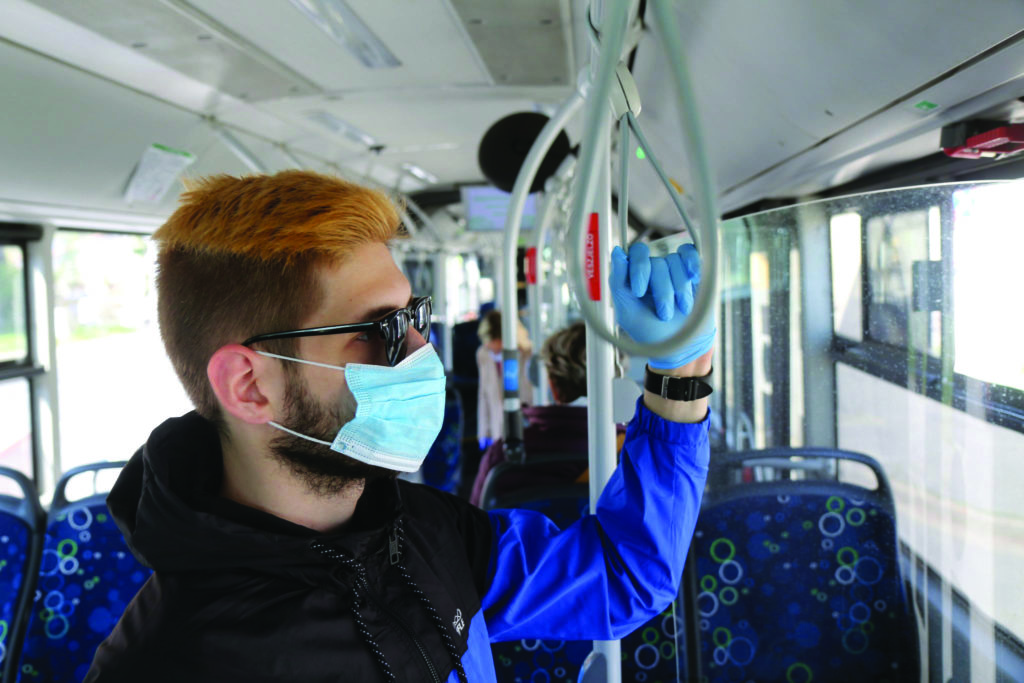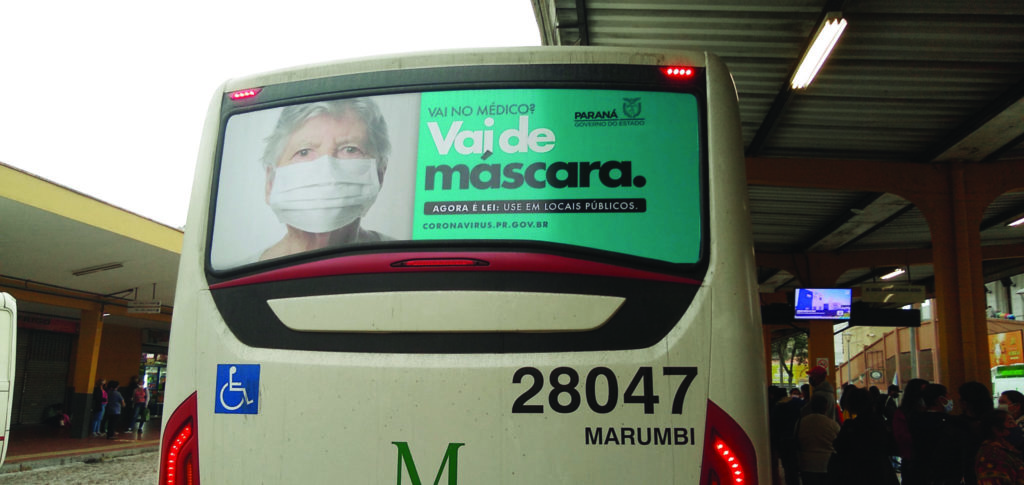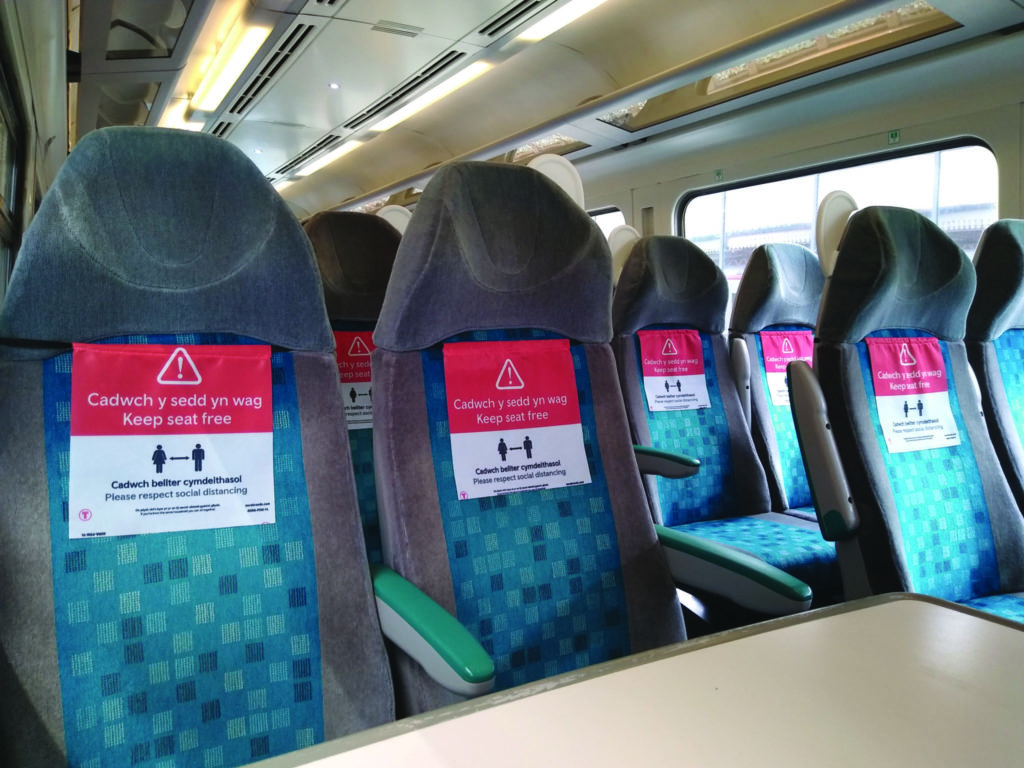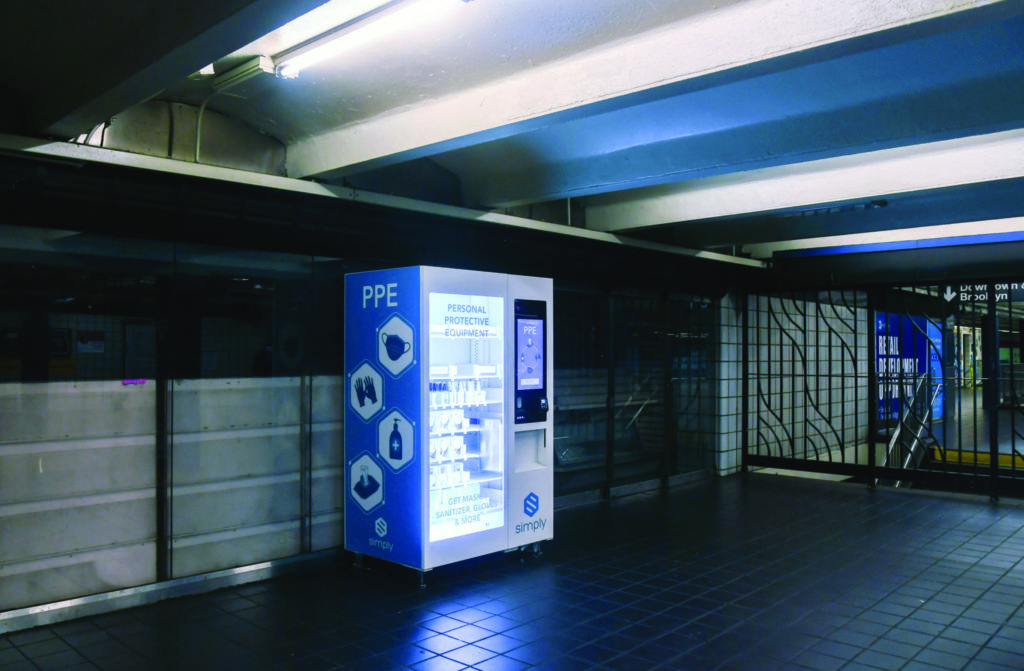Public Transport Is Always There for Us
2020 has been defined by the Covid-19 pandemic and the impact it has had on all our lives – the world has faced a lot of uncertainty.
Many sectors have been impacted in unprecedented ways by this ongoing outbreak and a great deal of change has taken place in the cities we call home. But the main message from our sector has remained strong: public transport is always there.
It may have faced many complex challenges over the last few months, but the positive case for public transport in our cities is stronger than ever.
Podcast with Mohamed Mezghani and Marie Kress. Source: Smart mobility podcast
Many of you will be experiencing a new normal to your working day. As a digitalonly world has replaced the standard office environment, our idea of community is changing. Public transport is its own community, with every passenger and every worker as a part of that family. For those working on the association-side of the sector, it’s a community that thrives on face-to-face networking. Now, with the changes to working life, it’s more important than ever to make the already positive case for public transport even clearer and encourage people back into that community.

When the lockdown began many local networks ran on reduced services. This led to a decrease in farebox revenues (in some cities the initial reduction in patronage was more than 90%) and also to increased costs needed to disinfect and implement new safety measures in public transport vehicles and infrastructure. Now passengers are returning, but there’s still work to do. UITP has always recognised the positive role public transport plays in our lives. But perhaps now, during this global pandemic, the world is seeing just how vital it has become.
Guardians of mobility
Despite the restriction of movement in states around the world, essential workers needed to get to and from their place of work. Those in the medical profession, those working in the rescue services, those providing essential care – public transport helped them do that. It never left them.
Then there were those who needed to get their groceries, those who needed access to education, to healthcare, or to visit the elderly or the infirm.

It was a challenge, but buses, trams and trains kept moving.
And those working in public transport became our Guardians of Mobility. It was an honour for UITP and our international membership to honour them and salute their dedication, commitment and resilience in what have been uncertain times.
Even with all the change the pandemic has brought, and continues to bring, the support and positive attitudes we have seen within our community still remain.
Public transport is vital for urban living
However, in order to limit the social, economic and financial consequences of COVID-19, exceptional measures still need to be adopted. Public transport should be high on the agenda of government financial rescue packages as it must not only survive, but thrive and build back better. Public transport is vital for our cities – it’s vital to good urban living.
At UITP, we work with more than 1800 members to advance public transport. The UITP team is made up of a wide variety of urban mobility experts, based around the world working tirelessly to monitor the impact on our sector – producing detailed and informative research along the way.

We believe that moving people together is the only way to make our cities more liveable. The answer is certainly never more private, single-use car journeys.
Now that restrictions on movement have been lifted in certain cities we have seen the return of some of those who may have stopped using their local networks during the restrictions.
Encouraging mobility
Research tells us that transmission on public transport is low. At UITP, this is the kind of information and advice that we are constantly sharing with our members and the general public. Through publications, in interviews and via UTIP’s digital platforms our work has seen a lot of engagement and it’s always encouraging.
But more needs to be done to encourage people to return to public transport.

The wearing of masks must become mandatory on board all networks. We’ve seen this become commonplace in many cities, but some still choose to encourage physical distancing instead, or alongside the wearing of masks. But physical distancing on board mass transport is not good for sustainable mobility, as it still encourages people to avoid it and travel by car.
Furthermore imposing physical distancing on public transport vehicles would mean operating them at a reduced capacity. Public transport authorities, operators and associations have worked around the clock (literally through the night) to make public transport modes clean, safe and comfortable for those who are using it during the pandemic and beyond. Surveys and empirical research show that public transport is a safe place. Now we must persuade people to come back and use it, not put them off.
Looking to the future
At the beginning of the pandemic, we spoke about the public transport sector surviving and thriving. To make this possible public transport must receive the necessary support and financing. Already it enables people to get education, reach employment and connect with one another, while also delivering on climate action and making our lives healthier.
But still it can do so much more.
At UITP, our focus is on what the future can look like. How do we come out of this stronger than before? How do we build back better? Alongside UITP’s global membership, we’re focusing the conversation on making the sector better than ever before. With a focus on better mobility, comes better cities for everyone.
Let’s build back better – together.